 The author of Master of None was interviewed at length by Ming Pao, the Hong Kong newspaper. The translated text is reproduced below. (To read it in the original Chinese, click the image on the right).
The author of Master of None was interviewed at length by Ming Pao, the Hong Kong newspaper. The translated text is reproduced below. (To read it in the original Chinese, click the image on the right).
Freedom Behind Bars – John Hung
“Human beings created justice, as well as injustice,” he said.
A man who has been treated unfairly in this unjust place can only seek legal recourse, hoping that justice will prevail and that he would eventually regain his good name. Unfortunately, the court may not be as just as he would hope. The layer-by-layer conviction and dismissals made by the Court of First Instance, Court of Appeal and Court of Final Appeal signify the uncertainty and unpredictability of the judgment. It is dangerous to only look for justice in law or accept it as the last resort in the judgment of morality. We cannot simply measure ourselves and others by these provisions. “Where will we find true final judgment then? Perhaps it is the Almighty.”
He was a high flyer in the business world. He had been working for Wheelock & Co. and Wharf Holdings for over thirty years and everyone knew him as the group’s “Financial Strategist”. He was engaged in numerous roles in public service and had been the chairman of the Sports Development Board for seven years. He was also awarded the Silver Bauhinia Star. Although his life looked like paradise, his perfect aristocratic privilege could not stay with him forever. In 2009, he was sentenced to sixteen months in jail for corruption. One year after his release, he published the autobiography he wrote in prison: “Master of None”. He did not use his book to reverse the verdict, nor did he complain. “I don’t want to talk about the past, I have a clear conscience.”
He was a “taipan”, a supreme leader, and also a prisoner. He is — John Hung.
Text by Bai Lan, Photo by Lau Chun To
The days when social status was lost
“I don’t want people to forget that I was a prisoner. I was there, it is true and I can’t change that.”
On 25th June 2009, John Hung was sentenced to sixteen months in prison on corruption charges and was immediately taken into custody. He thought that he could escape unpunished; however, he was found guilty. After the verdict was read, he was handcuffed in the blink of an eye. His lawyers whispered to him that he should appeal. He looked at his wife, but there was not enough time to talk. His status as a commercially successful and influential man could not protect him any more. He was left in shock at the rapidity of the process as he got into the prison van. His head was still in a cloud until the van arrived in front of Stanley Prison’s gate. When he entered, the prison officers asked him to remove his clothes.
John was born into the privileged class. His grandfather was the wealthy Sir Robert Kotewall. He graduated from the Diocesan Boys’ School and Hong Kong University. Thereafter, he became well known in both the political and the business world. His reputation and success, constructed over decades, were taken away in one day. “I lost all pride in prison. They asked me to take off my clothes, I wasn’t used to it. It was a little bit debasing.”
John was over six feet tall but had to stay in a small prison cell no larger than six square metres. He spent his first night lying on the plank bed, staring at the ceiling while thinking about the next sixteen months.
He sweated like a pig during the sweltering summer and had to shower in freezing water during the winter. He finally lost over seventeen kilograms. Nevertheless, physical exhaustion was far less harsh than the mental suffering, “I didn’t care about myself, but was concerned about my wife and children. Hong Kong is so small, who doesn’t know me? How would my former acquaintances treat my wife? Would they give her a bad name?” His family could only visit him twice a month, and each visit was limited to thirty minutes. He understood his prison life was hard, but felt it was even harder for his wife to face the judgmental society around her.
He started writing in the third month. Since he was isolated from the outside world, writing about his life was the only thing he could do. He recreated himself with his pen, transcribing each decade of his life. He said his mind was quicker than his handwriting and it took only four months to finish his book. His entire life was written on those pages, word by word. He used to be a forward-looking person, but this time, he took a look back at the written account of his life and thought, “A seventy-year-old man must have made many mistakes, so even if I turn ninety I should continue to learn, and not complain.”
His friends told him that if he did not broadcast or mention his time in jail, people would someday forget that he was a prisoner. John, however, prefers to take the responsibility: “I define clearly what actually happened. I control my own destiny and would not allow it to be controlled by others.” He might as well be honest to the public instead of hiding the truth: “I was in jail and I admit it. There is no reason to bury my head in the sand. I was there, I got through it and it became my experience, good and bad. Other people may have prejudice against me. I am restricted from doing many things because of this, but my head is clearer than before. In prison, I had sixteen months to think quietly and realized what I did right and what I did wrong.”
The possibility of freedom
Other prisoners were mostly criminals who committed theft, arson and such like. They were mostly people without position or fame. For them, being released from prison simply meant recovering their freedom. On the other hand, John thought his release meant jumping to another bigger and perhaps more stressful kind of “prison”. He worried, “because of my social status, I have to face huge pressure. How would society treat me? How could I re-adapt to society?” He was anxious about leaving, even felt apprehension. After staying at Stanley Prison for several months, his mood changed and he started feeling more tranquil. “That place is like a community. Nobody laughs at you or looks down on you, as if you have to hide. It was a terrible place to be in, but strangely I felt protected.” Unexpectedly, that place was so carefree and peaceful.
You can even be free in prison because of its isolation and emptiness. Comparatively, the people living in society may feel totally shackled by pressure. The only difference between prisoners and ordinary people could be the prison uniform. “There, my thinking process was free, without being hindered by any social pressure. My greatest source of stress used to be the balance between work and my family. But there, your wife won’t give you pressure, neither would your boss nor society.” After all, the prison is a cage to keep people in a tidy room. It places restrictions on your life, status and relationships. But freedom of thought was the most important thing for him: “you can imprison me, but you can’t take away my freedom.”
When he had nothing else to do…
Writing became his escape which set him free from prison and time. It allowed him to face his past squarely. It permitted him to honestly bring back to life what had taken place in his history.
The environment affects every human life. No matter if you are an important political or business leader or a common person from the lower middle class, you cannot stop the influences of economic, political and geographical changes. He was a “taipan” in the past, but a changing environment could still pull him down from the top. He wanted to reach great heights and became successful. He sought status and wealth: “These values are dictated by society. But even if you have thirty houses, can you live in all of them? What is an ownership? It is something created by human beings and societies.”
He used to be a competitive person. Victory was everything to him and he did his best in everything. He was working day and night without sharing enough time with his family nor having time for himself. “When you are a senior executive, you are driven by adrenaline. It is like an obsession; a disease.” Prison gave him space and time for soul-searching. He realized that he had enough: “If I had never been in jail, I’m not sure if I would have these feelings, but since I was there, I clearly know what went wrong and what was too much. I then asked myself if it was worth it.” It was too much of a good thing.
He was/is still young
Youthfulness is not determined by one’s age, but by one’s mentality.
“I understand the frustrations of young people and what hurts them. When I was a manager, I gave them time and treated them fairly.” He recalls that when he was a young intern, he received advantageous training and kept learning during the first two years. He now bemoans that employers are nowadays expecting too much knowledge and experience from young people. “How can they have experience when they don’t even have a job?” He said this is similar to the regulations of some golf clubs where members must have handicaps in order to play on the golf course, but if the person has never played golf, how can he get a handicap?”
“In Hong Kong, we need to help different kinds of people: the elderly, the sick and people with disabilities, etc. I say we should help the youth too. It’s difficult enough for the fresh graduates to look for a job, and when they get one after several months of searching, they still cannot live on their income.” A set lunch costs a minimum of 40 dollars, transportation costs continue to rise, our basic needs are more expensive and property prices have reached historical highs. Nevertheless, salaries have not kept up with price increases and instead have been very lean due to the competitiveness in the market and the lack of experience. A comfortable life and ambitious dreams have become extravagant hopes.
Chief Executive Donald Tsang stated that the deepest feelings of resentment were from the young people. “If you said the young people were resentful, do something for them!” How can people not resist if you throw them into despair?
His Hong Kong
Four generations of his family have lived in Hong Kong. He is of mixed race but very much a ‘Hongkonger’. He loves Hong Kong, but some things have changed. After the handover, we have enjoyed robust economic growth. However, the political system, social welfare, culture and other aspects have not kept pace with economic development.
“Nowadays, big businessmen from all over the world continue to walk the streets of Central in Hong Kong, the international financial centre of so-called “Asia’s World City”. However, there are still crippled beggars in the middle of Pedder Street. Why can’t we take them off the streets and provide shelter for the poor? Who can do it? It must be the Government!”
He recalls that when he was small, Pedder Street was empty and his father could park his car unattended in the middle of the street. In today’s Pedder Street, cars are running into each other and people are pressed together like sardines. Everything is happening here, but it seems that no one wants to stop.
Except for him; he has stopped now – clear-headed.
(Text translated from Chinese)
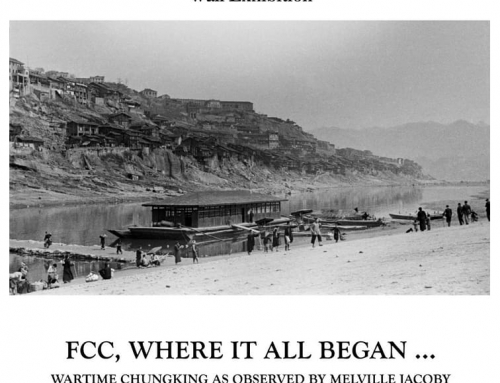
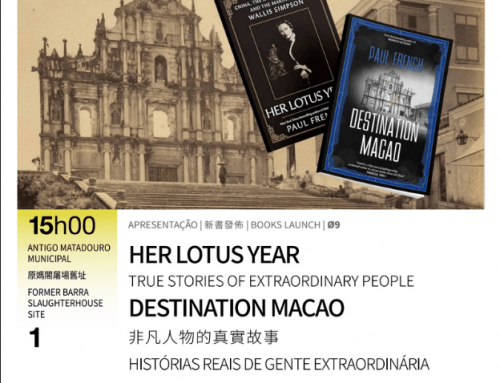
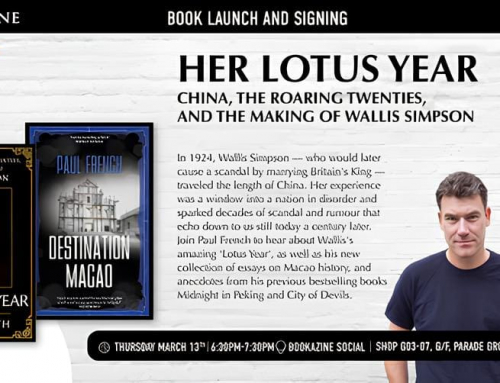
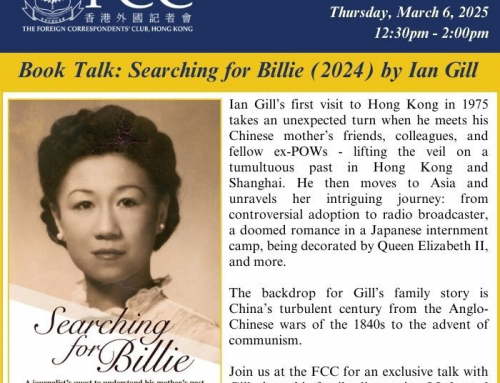
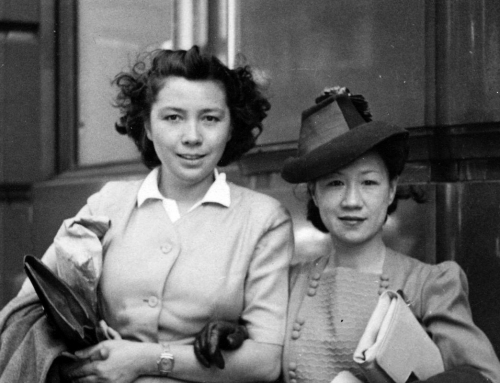
Time has changed. People who are descendants of the comprodore class do not have the same political or societal connections as those in the previous generations under colonial administration. The new elite of H k look to Beijing for honor and status. Check out the background of CY Leung. Raise your head,my friend, you see a Five Stars flag and not the Union Jack. Wake up.
If you look at the development of many developing nations which gained independence from the British, those who support the old regime usually feel lost. More so in H K which did not become independent but was subsumed under China which resent the previous sovereign governing a colony ceded to the British by a disgraceful and unequal treaty. There is a strong under-current to swipe the colonial relics under the carpet and ignore it if you can. For that reason alone those who prospered as children of compradore class will lose out in the game.
Now,after 1997, the British are no longer the top dogs. Before 1997, in official or business meetings, whenever there was a non-chinese speaking person present, everybody spoke English. Now, after 1997, if the same situation happens, as witnessed by me often enough, they leave the non-chinese speaking person being deaf and dumb, every body carries on speaking Chinese. So you know that a change of sovereignty is not just a change of flags so simple.
Good post. I learn something totally new and challenging on sites I stumbleupon every day. It’s always helpful to read articles from other writers and use something from their sites.
Even HSBC will not relocate back to H K. HSBC choose to stay in London. Those who are nostalgic about the colonial past are the saddest people of all.
Writers in small countries are not easy to sell their books. I have been helping Singaporean and Hong Kong writers to develop a market for their books in USA.
Civil liberties in Hong Kong are facing many crises. One country two systems is dead.